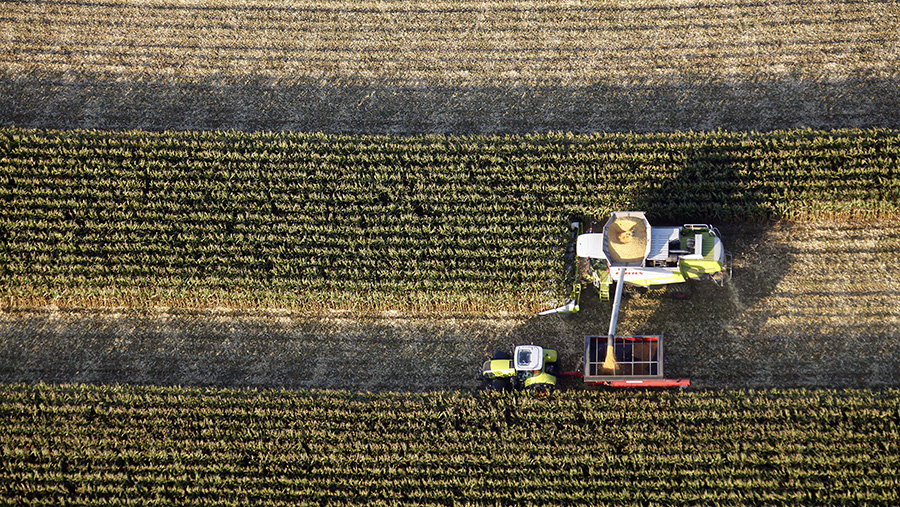UK farm income drop is fifth largest in the EU
 ©Hans Blossey/ImageBroker/Rex Shutterstock
©Hans Blossey/ImageBroker/Rex Shutterstock The UK has seen real agricultural income per worker drop by nearly 20% between 2014 and 2015 – one of the most significant falls of any EU country.
According to estimates published by the EU’s body for statistics Eurostat, real agricultural income in the union has fallen by 6% in 2015, while agricultural labour input has dropped by 1.8%.
This means that real agricultural income per worker in the EU has decreased on average by 4.3%.
See also: Farm incomes suffer across the EU
The UK has seen a drop in real agricultural income per worker of 19.3%, while in Germany the figure has dropped by a staggering 37.6%.
Sharp falls in in the value of sugar beet, grain maize and milk have all contributed to the problem.
But 13 countries in the EU have seen a rise in real agricultural income per worker, the largest of which was seen in Croatia (an increase of 21.5%).
Changes in real agricultural income per worker in 2015 |
||
|
Changes 2015-2014 (in %) |
Changes 2015-2010 (in %) |
|
|
EU |
-4.3 |
-5.7 |
|
Belgium |
+8.2 |
-27.2 |
|
Bulgaria |
-9.9 |
+17.4 |
|
Czech Republic |
-15.6 |
+21.6 |
|
Denmark |
-19.7 |
-18.4 |
|
Germany |
-37.6 |
-35.3 |
|
Estonia |
+3.2 |
-16.8 |
|
Ireland |
+1.4 |
+16.1 |
|
Greece |
+12.1 |
+4.7 |
|
Spain |
+3.8 |
+11.6 |
|
France |
+8.8 |
-2.5 |
|
Croatia |
+21.5 |
-17.3 |
|
Italy |
+8.7 |
+26.1 |
|
Cyprus |
+0.7 |
-7.2 |
|
Latvia |
+14.3 |
-23.7 |
|
Lithuania |
-3.4 |
-7.5 |
|
Luxembourg |
-20.0 |
-30.1 |
|
Hungary |
-6.7 |
+11.6 |
|
Malta |
-4.0 |
-31.0 |
|
Netherlands |
-4.7 |
-11.8 |
|
Austria |
-2.6 |
-27.6 |
|
Poland |
-23.8 |
-31.2 |
|
Portugal |
+3.4 |
+5.5 |
|
Romania |
-19.2 |
-34.7 |
|
Slovenia |
+6.0 |
+7.5 |
|
Slovakia |
-10.6 |
+14.6 |
|
Finland |
-7.2 |
-53.7 |
|
Sweden |
+2.4 |
-8.3 |
|
UK |
-19.3 |
-21.6 |
|
Iceland |
+5.8 |
|
|
Norway |
+1.9 |
-25.8 |
|
Switzerland |
-4.8 |
+12.3 |
The figures emerge just days after the NFU warned that increased volatility and falling commodity prices across the sectors have seen short-term confidence in the industry drop.
A survey of members showed that confidence specifically in the arable and dairy sectors has declined significantly from last year.
However, farmers across the industry told the NFU that they were more optimistic about their prospects for the medium-term.
